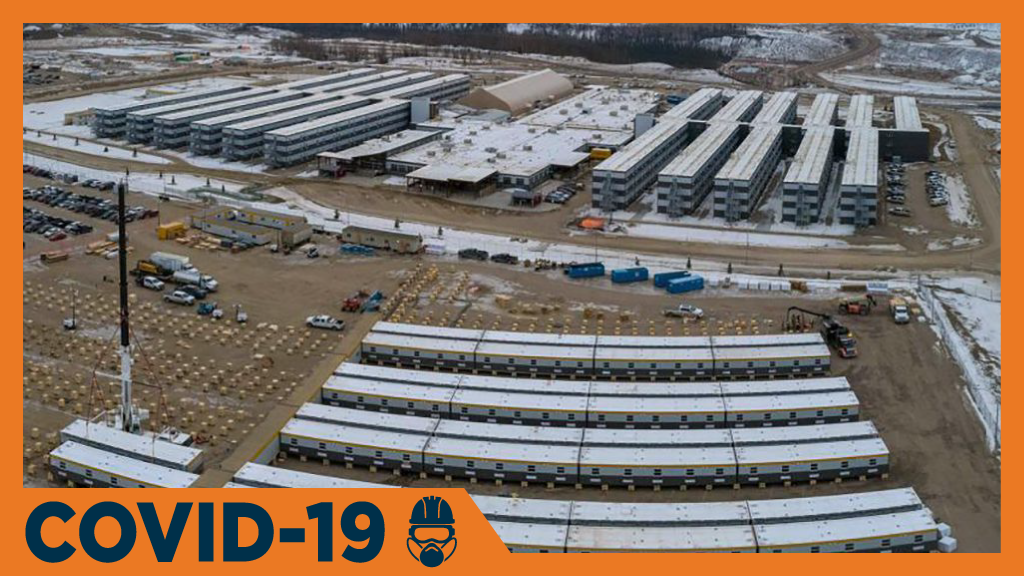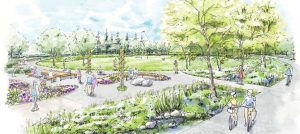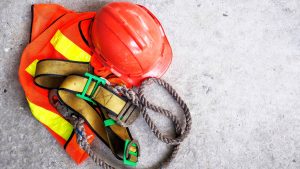Following the guidance of Dr. Bonnie Henry, B.C.’s health officer, officials have released guidelines to keep workers safe from COVID-19 infection at industrial work camps for projects like the Site C Dam or Kitimat LNG.
According to the province, the guidelines are intended to highlight key preparedness and response measures that can be taken by industrial camps in relation to COVID-19.
“By providing staff and residents with accurate information about prevention and control measures, the guidelines can help minimize transmission within the camps,” read a statement by provincial officials.
The guidelines include:
- Prevention measures and control in camps
- Plans on how to manage individuals with suspected COVID-19 infection
- Outbreak protocols.
- Support for camp residents who are self-isolating
- Enacting physical distancing.
- Ensuring sufficient infection-control supplies
Officials noted that the guidance is also based upon current knowledge, and is subject to change as new information becomes available and new developments with COVID-19 arise.
“We appreciate the government recognizing the important role of construction in our communities by designating it a non-health essential service,” said Andrew Mercier, executive director of the BC Building Trades. “These guidelines are a way to make sure that the people who have to go to work every day remain safe.
Mercier explained that while there have been workers complaining of unsafe working conditions, many in the industry are rising to the challenge.
“We’re all navigating this pandemic for the first time,” he said. “We’ve heard countless stories of construction sites failing to comply with the orders of our provincial health officer, but we’ve also heard of responsible contractors taking the orders seriously and finding innovative ways to comply.”
Because the COVID-19 threat could last months, Mercier said that the industry must find ways to work safely, even if that means finding compromises such as reducing the number of workers in a camp. Workforces have already been reduced at LNG Canada’s Kitimat site as well as Site C which received praise from the Building Trades.
“As for specific guidelines, we’re pleased to see recognition of the need for people who are self-isolating to have separate sleeping quarters and also preferably a separate bathroom,” said Mercier. “Since most in construction don’t get paid sick days, we’re also pleased to see the guidelines recommend that workers continue to receive wages if they are forced to self-isolate.”
Mercier added that he was heartened to see a recommendation for every camp to develop a disease prevention and management plan. He added that the the safety of construction workers is of paramount importance, and the Building Trades will be monitoring these sites to ensure enforcement.
The guidelines also received praise from the Progressive Contractors Association.
“Protecting the health and safety of workers comes first and foremost. It’s priority one at PCA and it applies to each and every construction site,” said Paul de Jong, PCA president. “With construction in most provinces deemed essential, the more our industry can do to keep those worksites safe and operating, the bigger the contribution to our families, communities and our economy.”
De Jong added that these are “extraordinary times” when employers must step up and put the health and safety of their workers first, even though it may be more challenging on some sites.
PCA has provided its member companies with Best Practices Guidelines. De Jong said that the association is closely monitoring directives from government and public health officials to ensure companies have the guidance, resources and information they need to protect their workforce.











Recent Comments
comments for this post are closed